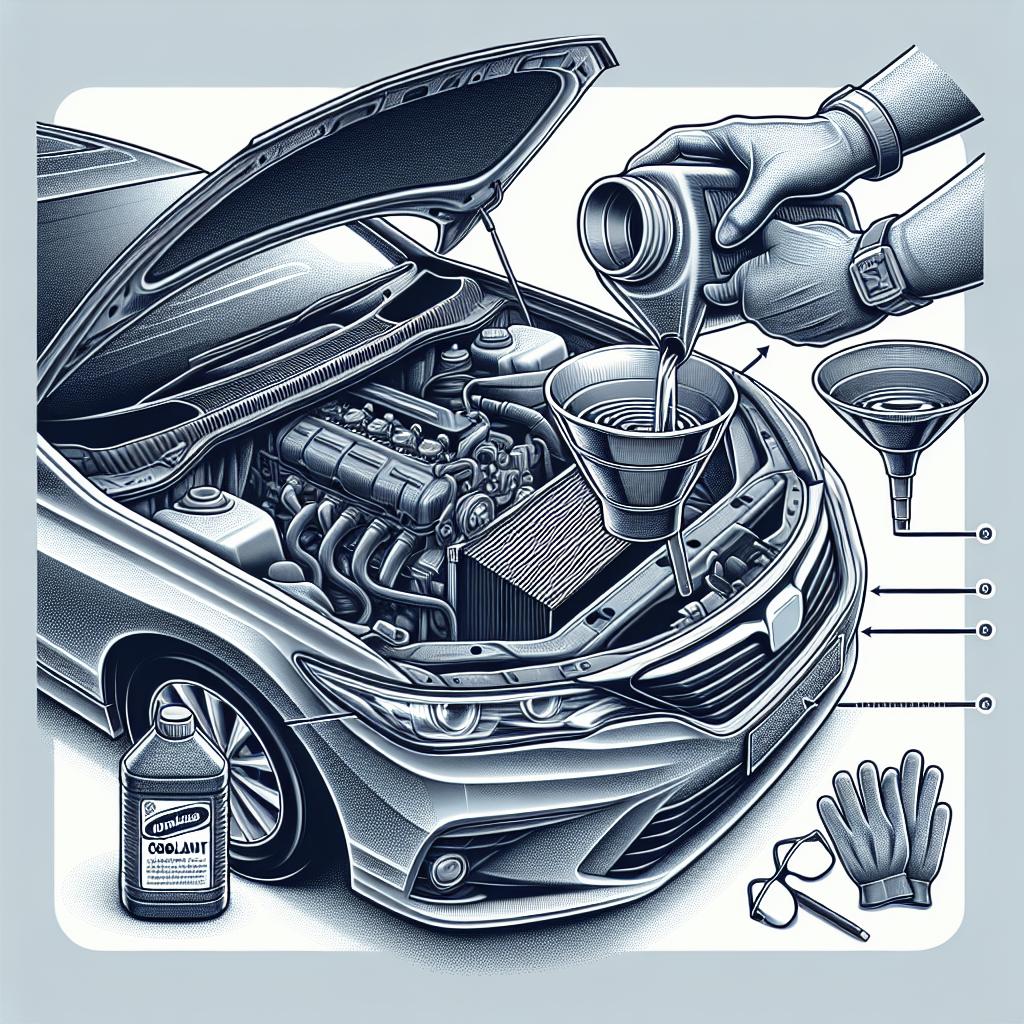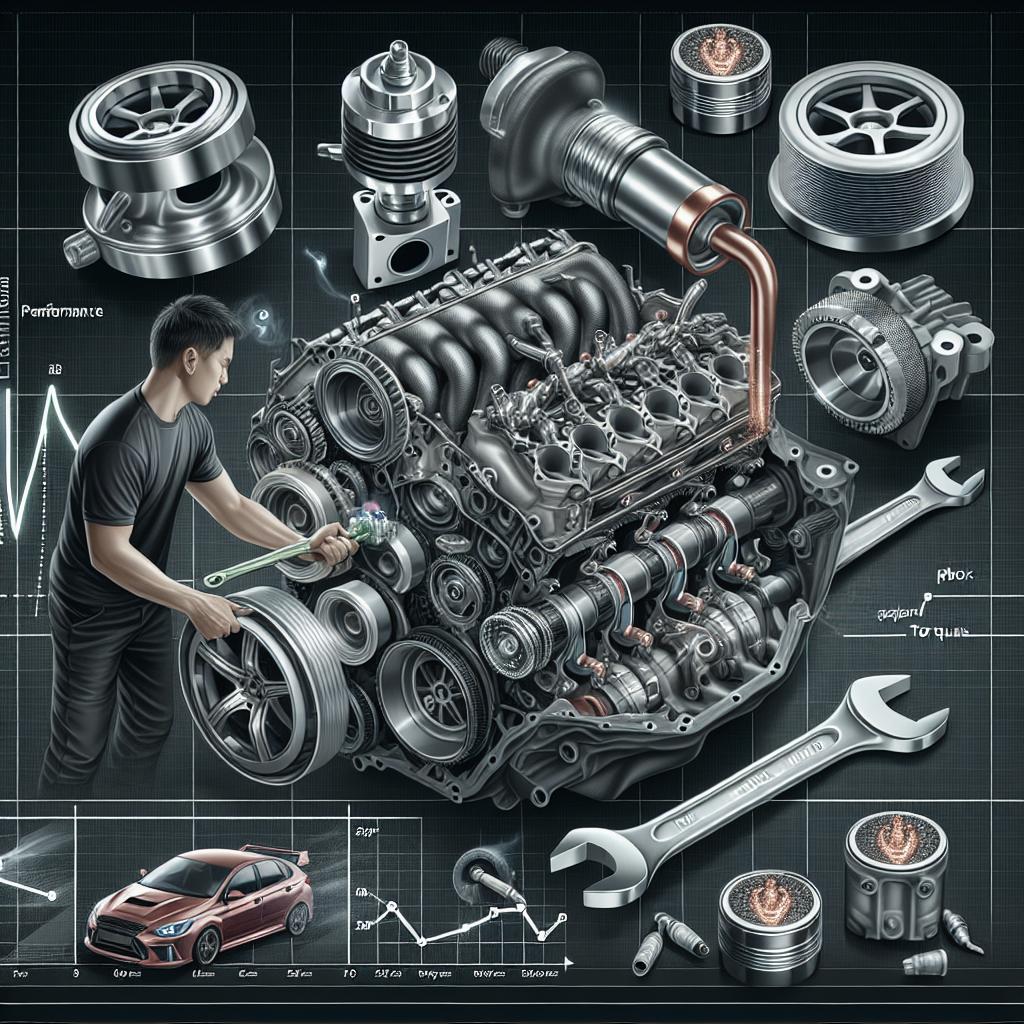“`html
Common Car Maintenance Mistakes to Avoid
Maintaining a vehicle can seem like a daunting task, but keeping your car in excellent condition doesn’t have to be complicated. Neglecting routine maintenance can lead to costly repairs and even compromise your safety on the road. In this post, we will delve into the common car maintenance mistakes to avoid. From skipping routine oil changes to overlooking brake warning signs, we’ll explain how you can extend your vehicle’s life and ensure optimal performance. Stick around to learn valuable insights on sustaining your car’s health and enhancing your driving experience.
1. Skipping Routine Oil Changes
Regular oil changes are critical to the health of your car’s engine. Engine oil lubricates essential components, reducing friction and helping prevent overheating. Over time, oil degrades and becomes contaminated with dirt and particles, which decreases its effectiveness. Failing to change the oil routinely can lead to significant engine damage, increasing the risk of breakdowns and costly repairs.
It’s vital to follow your vehicle manufacturer’s guidelines for oil change intervals. Modern cars often come with flexible service intervals, where the vehicle calculates service schedules based on various operating parameters. Whether you select a synthetic blend or conventional oil, regular updates will ensure your car runs smoothly. Failure to perform this simple task can strip years off your engine’s lifespan.
2. Ignoring Tire Pressure & Condition
Tires are the only contact point between your car and the road, so maintaining their condition is crucial. Driving with low or high tire pressure affects vehicle performance and safety. Low pressure can cause excessive tire wear and increase fuel consumption, while high pressure may lead to a bumpy ride and inadequate traction.
To avoid these issues, regularly check your tire pressure using a reliable gauge and rotate your tires as per your car’s manufacturer recommendations. Don’t forget to inspect tread depth and look for signs of wear or cracks. Properly maintaining your tires will ensure optimal vehicle performance and reduce the likelihood of accidents.
3. Neglecting Wheel Alignment
Wheel alignment refers to the angle adjustment of your wheels for ensuring they’re parallel to each other and perpendicular to the ground. Misalignment can lead to uneven tire wear, steering issues, and reduced fuel efficiency. It often results from hitting curbs, driving over potholes, or general wear over time.
If you notice your car pulling to one side or your steering wheel is not centered while driving straight, it’s time to have your alignment checked. Most alignment services include a detailed check of your car’s suspension and steering components, preventing further issues down the road.
4. Forgetting to Check Fluid Levels
Fluids are the lifeblood of your car. From transmission fluid to coolant and brake fluid, maintaining correct levels ensures your vehicle operates efficiently. Low or dirty fluids can lead to overheating and mechanical failure.
Regularly check your car’s various fluid reservoirs and top up as necessary. If you’re unsure, your car manual is an excellent guide for which fluids to check and how often. Regular fluid maintenance not only prolongs your vehicle’s life but also optimizes performance.
5. Not Changing the Air Filter
The air filter is often overlooked, yet it plays a critical role in maintaining engine health. It prevents dirt, dust, and debris from entering the engine, keeping it clean and running efficiently. A clogged air filter decreases fuel efficiency and can lead to engine problems.
Replacing your air filter based on manufacturer recommendations, usually every 12,000 to 15,000 miles, is a quick way to boost your engine’s performance. A clean air filter can significantly improve acceleration and fuel economy, saving you money in the long run.
6. Missing the Warning Signs of Brake Problems
Brakes are one of the most important safety features of your car. Ignoring problems with your brakes can have dire consequences. Common warning signs include strange noises, a vibrating brake pedal, or an increase in stopping distance.
Regularly check your brake pads and rotors, and have them serviced if you notice any issues. Ensuring your brakes are in top condition will not only extend the life of your vehicle but also keep you safe on the road.
7. Disregarding Warning Lights
Your car’s dashboard is equipped with warning lights that alert you to potential problems. Disregarding these signals can result in irreversible damage to your vehicle. Each light is indicative of a specific issue, from low oil pressure to a malfunction in the emissions system.
It’s essential to familiarize yourself with these warning lights and take immediate action if any illuminate. Addressing these problems sooner rather than later can prevent expensive repairs and keep your vehicle running smoothly.
8. Letting AC Issues Get Out of Hand
While an air conditioning system may not affect your car’s performance, it significantly impacts comfort, especially during hot weather. Ignoring AC issues can lead to larger problems, such as refrigerant leaks or compressor failure.
Regular checks and maintenance of your AC system, including fluid recharge and part replacements when needed, will ensure it functions efficiently. A well-maintained AC system enhances driving comfort and can also assist in defogging windows during colder months.
9. Using Low-Grade Car Parts
Compromising on the quality of car parts to save money at the outset can be detrimental in the long run. Low-grade parts often have a shorter lifespan and may fail unexpectedly, leading to further damage and higher repair costs.
Opt for OEM (Original Equipment Manufacturer) parts or high-quality aftermarket components when making replacements. This investment ensures optimal performance and reliability of your vehicle, safeguarding your and your passengers’ safety.
10. Keeping Poor Records
One of the most straightforward ways to maintain your car effectively is by keeping accurate service records. Poor record-keeping can lead to missed maintenance and unnecessary repairs. It is crucial for identifying recurring problems and understanding your car’s history.
Organize your records manually or digitally, storing invoices and noting each service’s date and mileage. Good records also increase the resale value of your car, providing potential buyers with confidence in your car’s maintenance history.
Next Steps
| Car Maintenance Mistake | Recommended Action |
|---|---|
| Skipping Routine Oil Changes | Change oil as per manufacturer’s guidelines. |
| Ignoring Tire Pressure & Condition | Regularly check tire pressure and inspect tread. |
| Neglecting Wheel Alignment | Get alignment checked if your car pulls to one side. |
| Forgetting to Check Fluid Levels | Regularly check fluid levels and refill as necessary. |
| Not Changing the Air Filter | Replace air filter every 12,000 to 15,000 miles. |
| Missing the Warning Signs of Brake Problems | Inspect and service brakes regularly. |
| Disregarding Warning Lights | Address warning lights immediately. |
| Letting AC Issues Get Out of Hand | Regular checks and maintenance of AC system. |
| Using Low-Grade Car Parts | Choose OEM or high-quality aftermarket parts. |
| Keeping Poor Records | Maintain accurate service records. |
“`


